|
|
 |
One of the main IPCC activities is the preparation of comprehensive Assessment Reports about the state of scientific, technical and socio-economic knowledge on climate change, its causes, potential impacts and response strategies. The IPCC also produces Special Reports, which are an assessment on a specific issue and Methodology Reports, which provide practical guidelines for the preparation of greenhouse gas inventories.
Since its inception in 1988 the IPCC has prepared five multivolume assessment reports. The Fifth Assessment Report was released between September 2013 and November 2014.
They can be viewed under Publications and Data.
The IPCC is currently in its Sixth Assessment cycle. During this cycle, the Panel will produce three Special Reports, a Methodology Report
on national greenhouse gas inventories and the Sixth Assessment Report (AR6). More information on the Sixth Assessment cycle is available here.
The meeting to draft the outline of the Sixth Assessment Report (AR6) took place in Addis Ababa (Ethiopia) from 1 to 5 May 2017. The draft outlines were approved by the Panel
when it met in early September 2017. The three Working Group contributions to AR6 will be finalized in 2021 and the AR6 Synthesis Report in the first half of 2022 in time for the first UNFCCC global stocktake under the Paris Agreement in 2023
Approved outlines of the Working Group contributions to the Sixth Assessment Report:
For detailed information on the deliverly of the AR6, see the Strategic Planning Schedule (updated: 17 May 2019)
Authors and Review Editors
Scoping
The scoping meeting for the Sixth Assessment Report (AR6) took place in Addis Ababa (Ethiopia) from 1 to 5 May 2017. The draft outlines were approved by the Panel when it met in September 2017
Approved outlines of the Working Group contributions to the Sixth Assessment Report:
A call for nomination for experts to attend the scoping meeting was issued to governments, observer organizations and IPCC bureau members. They
were requested to submit their nominations via their focal points before midnight (CET) on 31 October 2016. The deadline was later extended to Monday 14 November 2016
In order to determine robust areas of consideration, participants in the Scoping Meeting should have a broad understanding of climate change and related issues, and
should collectively have expertise in the following areas:
Working Group I
- Climate system (atmosphere, ocean, land surface, cryosphere): observations (past and present), processes, and interactions.
- Natural and anthropogenic drivers of climate change (land use, well-mixed greenhouse gases, short-lived forcers including aerosols), carbon and other biogeochemical cycles.
- Climate modelling, model evaluation, predictions, scenarios and projections, detection and attribution, on global and regional scales.
- Earth system feedbacks and dynamical responses, including abrupt change.
- Climate variability, climate phenomena and teleconnections, extremes and implications for regional climate.
Working Group II
- Impacts on and vulnerability of natural and managed systems (land, freshwater and oceans) including genetics, physiology and regional ecosystem expertise.
- Palaeo and historical views of natural, managed and human systems across regions.
- Impacts, vulnerability and risks for sectors including fisheries, agriculture, tourism, transport, resource extraction, energy.
- Impacts, vulnerability and risks for human systems including health and well being, indigenous and cultural, livelihoods, poverty.
- Impacts, vulnerability and risks for settlements, including rural, urban, cities, and those on small islands and in coastal areas, and related systems and processes including food, economic and energy security, migration.
- Adaptation needs, options, opportunities, constraints and influencing factors including contributions from psychology, sociology, and anthropology.
- Approaches for adaptation to climate change: ecosystem and community based adaptation, disaster risk reduction, and early warning systems.
- Socio-cultural, anthropological and psychological background of making and implementing decisions.
Working Group III
- Socio-economic scenarios, modelling and transitions at the global, regional, national and local scales including integrated assessment approaches.
- Energy systems including supply and energy demand sectors (e.g., industry, transport, buildings). Mitigation responses in agriculture, forestry, land use and waste.
- Consumption patterns, human behavior and greenhouse gas emissions, including economic, psychological, sociological and cultural aspects.
- Policies, agreements and instruments at the international, national and subnational levels, including those at the city level.
- Technology innovation, transfer and deployment.
- Financial aspects of response options
Cross-cutting areas of expertise
- Co-benefits, risks and co-costs of mitigation and adaptation, including interactions and trade-offs, technological and financial challenges and options.
- Ethics and equity: climate change, sustainable development, gender, poverty eradication, livelihoods, and food security.
- Perception of risks and benefits of climate change, adaptation and mitigation options, and societal responses, including psychological and sociological aspects.
- Climate engineering, greenhouse gas removal, and associated feedbacks and impacts.
- Regional and sectorial climate information.
- Epistemology and different forms of climate related knowledge and data, including indigenous and practice-based knowledge.
Regional expertise
- Africa
- Europe
- Asia
- Australasia
- North America
- Central and South America
- Polar regions
- Small islands
- Ocean
Nominations page
Pre-Scoping
On 21 September 2016, the IPCC Secretariat sent out a pre-scoping questionnaire to governments and observer organizations to identify policy relevant
questions and scientific and technical topics to be addressed in the Sixth Assessment Report (deadline: 30 November 2016, extended to 12 December 2016). The responses received will be synthesized and made available to the participants of the AR6 Scoping Meeting and the Panel.
Chair's Vision Paper
|
|
|
Working Group AR5 and SYR sites:
|

The Fifth Assessment Report (AR5) is the most comprehensive assessment of scientific knowledge on climate change since 2007 when the Fourth Assessment Report (AR4) was released. It was released in four parts between September 2013 and November 2014.
AR5 is made up of the full reports prepared by theWorking Groups (I, II and III) and their Summaries for Policymakers as well as the Synthesis Report.
Click here for the WGI contribution on the physical science basis of climate change; here for the WGII contribution on impacts, adaptation and vulnerability;
and here for the WGIII contribution on mitigation of climate change. The Synthesis Report can be found here.
|
This page covers the contents of the AR5, the process of developing the AR5 and the wide participation of experts in the AR5 writing and review process.
AR5 Contents
AR5 puts greater emphasis on assessing the socio-economic aspects of climate change and its implications for sustainable development.
Some new features of AR5 as a whole include:
A new set of scenarios for analysis across Working Group contributions;
Dedicated chapters on sea level change, carbon cycle and climate phenomena such as monsoons and El Niño;
Much greater regional detail on climate change impacts, adaptation and mitigation interactions; inter- and intra-regional
impacts; and a multi-sector synthesis;
Risk management and the framing of a response (both adaptation and mitigation), including scientific information relevant to Article 2 of the UNFCCC referring to the "...stabilization of greenhouse gas concentrations in the atmosphere at a level that would prevent dangerous anthropogenic interference with the climate system".
The outlines and contents of the AR5 Working Group reports, approved by the Panel at its 31st Session in Bali, Indonesia, can be found in the AR5 reference document. See the AR5 leaflet for abbreviated outlines of each volume of the report.
Note: Changes in the Working Group III outline, as reflected in the following progress reports, were considered and approved by the Panel at its 34th and 35th Sessions (IPCC-XXXV/Doc. 21, IPCC-XXXIV/Doc. 18, Rev.1).
Several cross-cutting themes and methodologies meriting consistent treatment across Working Groups were identified for AR5. The IPCC organized expert meetings and workshops to facilitate consideration of complex topics relevant to the AR5 assessment process.
Key AR5 cross-cutting themes are:
- Water and the Earth System: Changes, Impacts and Responses;
- Carbon Cycle including Ocean Acidification (see Meeting Report);
- Ice Sheets and Sea-Level Rise (see Meeting Report);
- Mitigation, Adaptation and Sustainable Development; and
- Article 2 of the UNFCCC (see UNFCCC for definition).
Key AR5 cross-cutting methodologies are:
The AR5 Synthesis Report - The Synthesis Report synthesizes and integrates material contained within the Working Group reports and Special Reports. It is written in a non-technical style suitable for policymakers and addresses a broad range of policy-relevant but policy-neutral questions.
The AR5 Synthesis Report (SYR) was prepared by a Core Writing Team (CWT) led by the IPCC Chair. The team consisted of authors of the three Working Group report-writing teams and members of the Executive Committee.
See AR5 Synthesis Report website for further details.
The Decision to Prepare a Fifth Assessment Report
 |
The decision to Prepare a Fifth Assessment Report (AR5) was taken by members of the IPCC (the Panel) at its 28th Session in Budapest, Hungary (9-10 April 2008). |
The AR5 Scoping Process
A scoping meeting was then held in Venice, Italy (13-17 July 2009), to develop the scope and outline of the Fifth Assessment Report.
Working Group contributions to AR5
The outlines of the Working Group contributions were approved at the 31st Session of the IPCC in Bali, Indonesia (26-29 October 2009). The outlines, concept notes on cross-cutting matters, as well as workshops and expert meetings to be held in support of the AR5 assessment process, are compiled in the AR5 reference document.
Synthesis Report
AR5 Expert Meetings and Workshops
A number of expert meetings and workshops, including on cross-cutting issues, were held to support the process of preparing the AR5 as outlined in the AR5 Reference document. Reports of these meetings are published as IPCC Supporting Material. For details on the meetings that have been held see AR5 Workshops and Expert Meetings.
Approval/Acceptance of Working Group SPMs and Full Reports
The IPCC considered the WGI contribution to AR5 on the physical science basis in Stockholm, Sweden on 23-26 September 2013,
the WGII contribution on impacts, adaptation and vulnerability on 25-29 March 2014 in Yokohama, Japan, WGIII contribution on mitigation of climate change on 7-11 April 2014 in Berlin, Germany and the Synthesis Report on 27 October - 1 November 2014 in Copenhagen, Denmark.
The Working Group sessions approved their respective SPMs and accepted their respective full reports. A brief IPCC plenary session followed to accept the action taken by each Working Group. The Panel approved the SPM of the Synthesis report and adopted the longer report.
The AR5 Writing and Review Process
IPCC reports are prepared by experts selected by the Bureau, based on nominations by governments and observer organizations, to serve as IPCC Lead Authors. Over 830 authors worked on AR5, which encompasses over 50 chapters. The AR5 was prepared according to Appendix A to the Principles Governing IPCC Work on Procedures for the Preparation, Review, Acceptance, Adoption, Approval and Publication of IPCC Reports. On the right is a schematic description of the process.
The diagram illustrates the process for preparing reports of the IPCC. The process for the Synthesis Report is slightly different (see below).
Review is an essential part of the IPCC process to ensure an objective, unbiased, transparent and comprehensive assessment of current scientific technical information. Both expert reviewers and governments are called upon to comment on scientific and technical matters in a review process of several stages for a given IPCC report.
For more information on the preparation of IPCC reports see Principles and Procedures page.
The full review process for AR5 involved:
Step 1: First Review (by Experts)
The reviews of the First Order Drafts (FODs) for the three Working Group (WG) reports took place as follows:
WGI FOD 16 December 2011 - 10 February 2012
WGII FOD 11 June - 6 August 2012
WGIII FOD 20 July - 14 September 2012
|
Step 3: Government Review of Final Draft SPM
The government review of final draft SPMs took place as follows:
WGI 7 June - 2 August 2013
WGII 28 October - 20 December 2013
WGIII 13 December 2013 - 10 February 2014
|
Step 2: Second Review (by Governments and Experts)
The reviews of the Second Order Drafts (SODs) and drafts of the Summary for Policymakers (SPMs) for the three Working Group reports took place as follows:
WGI SOD 5 October - 30 November 2012
WGII SOD 29 March - 24 May 2013
WGIII SOD 25 February - 22 April 2013
|
Step 4: Approval/Acceptance of SPMs and Working Group Reports
For each Working Group report, the full reports were accepted at the Working Group Session and their SPMs approved by IPCC member governments at the Working Group Session and then accepted at a Session of the Panel.
These took place as follows:
WGI 23-26 September 2013, Stockholm, Sweden.
WGII 25-29 March 2014, Yokohama, Japan
WGIII 7-11 April 2014, Berlin, Germany |
Synthesis Report
The Synthesis Report comprises an SPM and a longer report. The draft of the longer report and its SPM undergo a simultaneous government and expert review. The longer report and the SPM are then revised by the authors with the help of Review Editors. The revised drafts of the longer report and SPM are submitted to governments and observer organizations and are both tabled for discussion in a Session of the Panel. This took place as follows:
| SYR government and expert review |
21 April - 13 June 2014 |
| SYR government review of final draft |
25 August - 10 October 2014 |
| Approval and adoption of the SPM and AR5 SYR |
27 October - 1 November 2014, Copenhagen, Denmark |
|
Note: Observer organizations have the opportunity of involving their experts in expert review stages. Such experts provide reviews under their own name; they do not represent these observer organizations.
Number of review comments on Fifth Assessment Report
|
|
Number of
comments |
Experts |
Governments |
Working Group I |
First Order Draft |
21,400 |
659 |
- |
Second Order Draft |
31,422 |
800 |
26 |
Working Group II |
First Order Draft |
19,598 |
563 |
- |
Second Order Draft |
28,544 |
452 |
33 |
Working Group III |
First Order Draft |
16,169 |
602 |
- |
Second Order Draft |
19,554 |
444 |
24 |
Synthesis Report
| First Order Draft |
5,944 |
85 |
42 |
Total |
|
142,631 |
- |
- |
Note: some experts register for more than one Working Group.
AR5 Calendar and Schedule
Full AR5 Schedule
A comprehensive overview schedule that contains dates for AR5 Scoping Meetings, Sessions of the Panel to approve outlines of the reports, Lead Author meetings, review periods and cut-off dates for new literature assessed in the AR5 is available here (AR5 Key Dates).
For all IPCC meetings and review periods, please see the IPCC Calendar.
Literature Cut-Off Dates
The IPCC process assesses published literature; it does not involve carrying out research. For inclusion in the Second Order Draft (SOD) of a Working Group contribution, literature must be submitted for peer review prior to the finalization of the SOD. In order to be reflected in the AR5, literature must be accepted for publication before the final draft is finalized. Any reference that does not fulfill these criteria was removed from the draft contribution together with the statement(s) that it supports.
Working Groups provided the following cut-off dates for new literature.
AR5 Lead Authors and Review Editors
About 830 Authors and Review Editors from over 80 countries were selected for the IPCC's Fifth Assessment Report (AR5) from about 3,600 nominated individuals. In the course of the assessment process Lead Authors enlisted Contributing Authors to prepare technical information in the form of text, graphs or data for assimilation by the Lead Authors into the draft sections. See the complete list of Authors and Review Editors, and the following statistics and regional coverage.
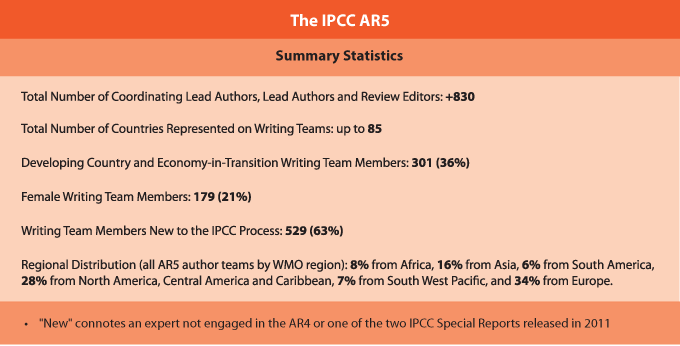
AR5 Author Teams
|
Working Group II |
Working Group III |
|
|
|
Authors of the AR5 Synthesis Report
The IPCC Chair led the Synthesis Report's Core Writing Team, whose composition was agreed by the 45th Session of the IPCC Bureau, Geneva, 13-14 March 2012.
Lead Author Meetings
In the course of the assessment process, four Lead Author meetings are held by each Working Group. All Coordinating Lead Authors and Lead Authors get together to initiate the writing process, consult on cross-cutting issues, consider review comments received and revise the text accordingly. Review Editors participate in such meetings to ensure that all review comments are afforded appropriate consideration.
Working Group I
WGI First Lead Author Meeting
8-11 November 2010
Kunming (China) |
WGI Third Lead Author Meeting
16-20 April 2012
Marrakech (Morocco) |
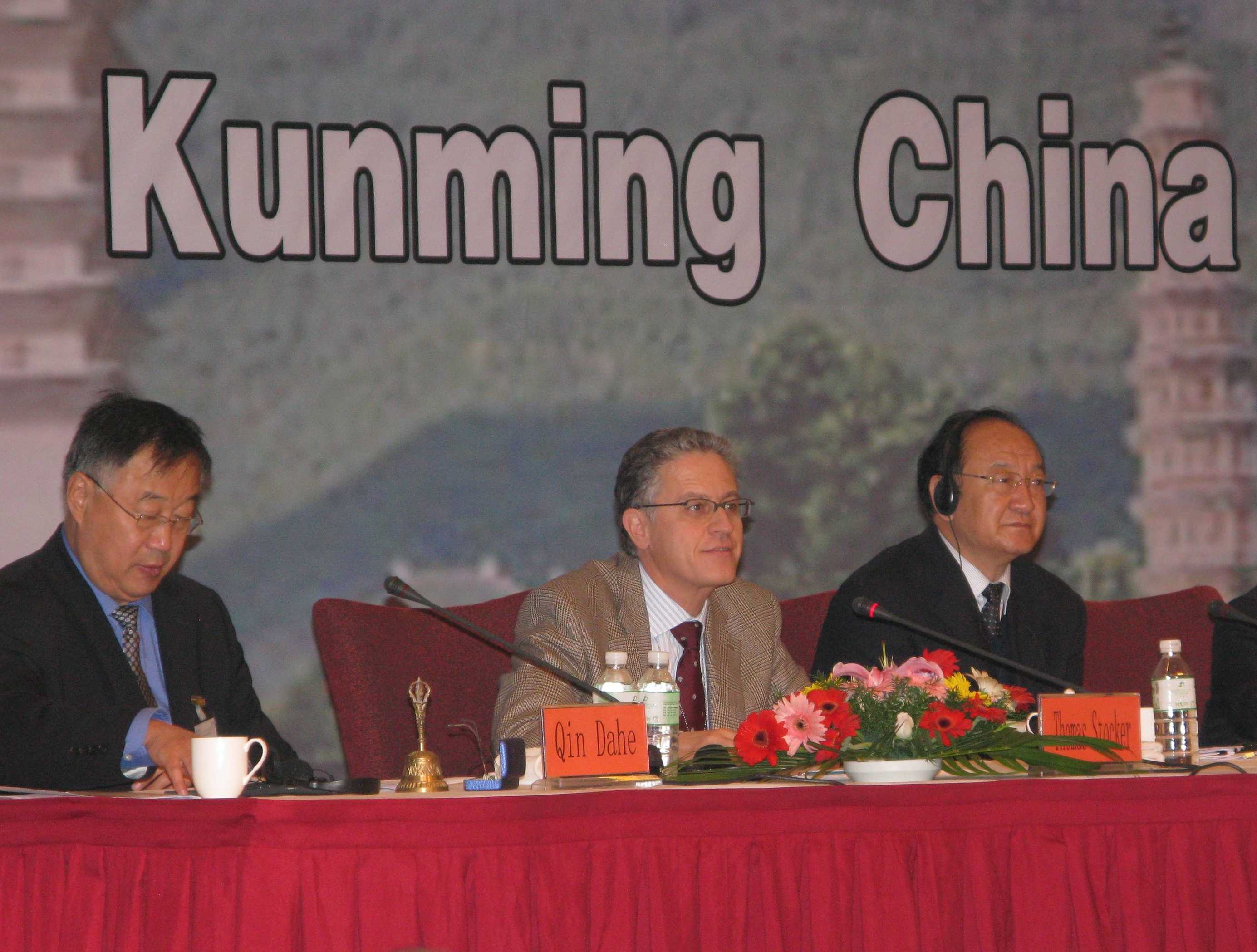 |
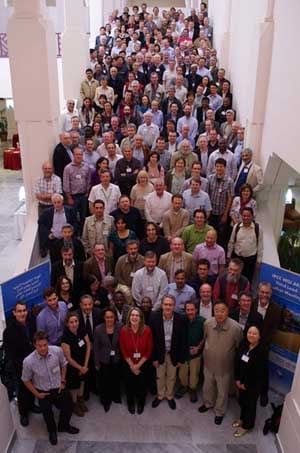 |
WGI Second Lead Author Meeting
18-22 July 2011
Brest (France) |
WGI Fourth Lead Author Meeting
13-19 January 2013
Hobart (Australia) |
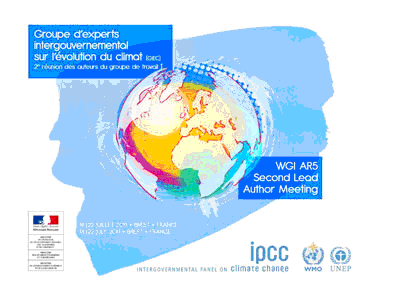 |
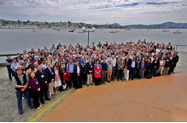 |
More information on the WGI contribution to AR5 can be found on the WGI AR5 website.
Working Group II
WGII First Lead Author Meeting
11-14 January 2011
Tsukuba (Japan) |
WGII Third Lead Author Meeting
23-26 October 2012
Buenos Aires (Argentina) |
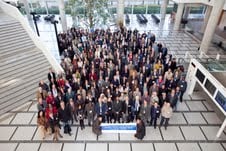 |
 |
WGII Second Lead Author Meeting
12-15 December 2011
San Francisco, CA (USA) |
WGII Fourth Lead Author Meeting
15-19 July 2013
Bled (Slovenia) |
 |
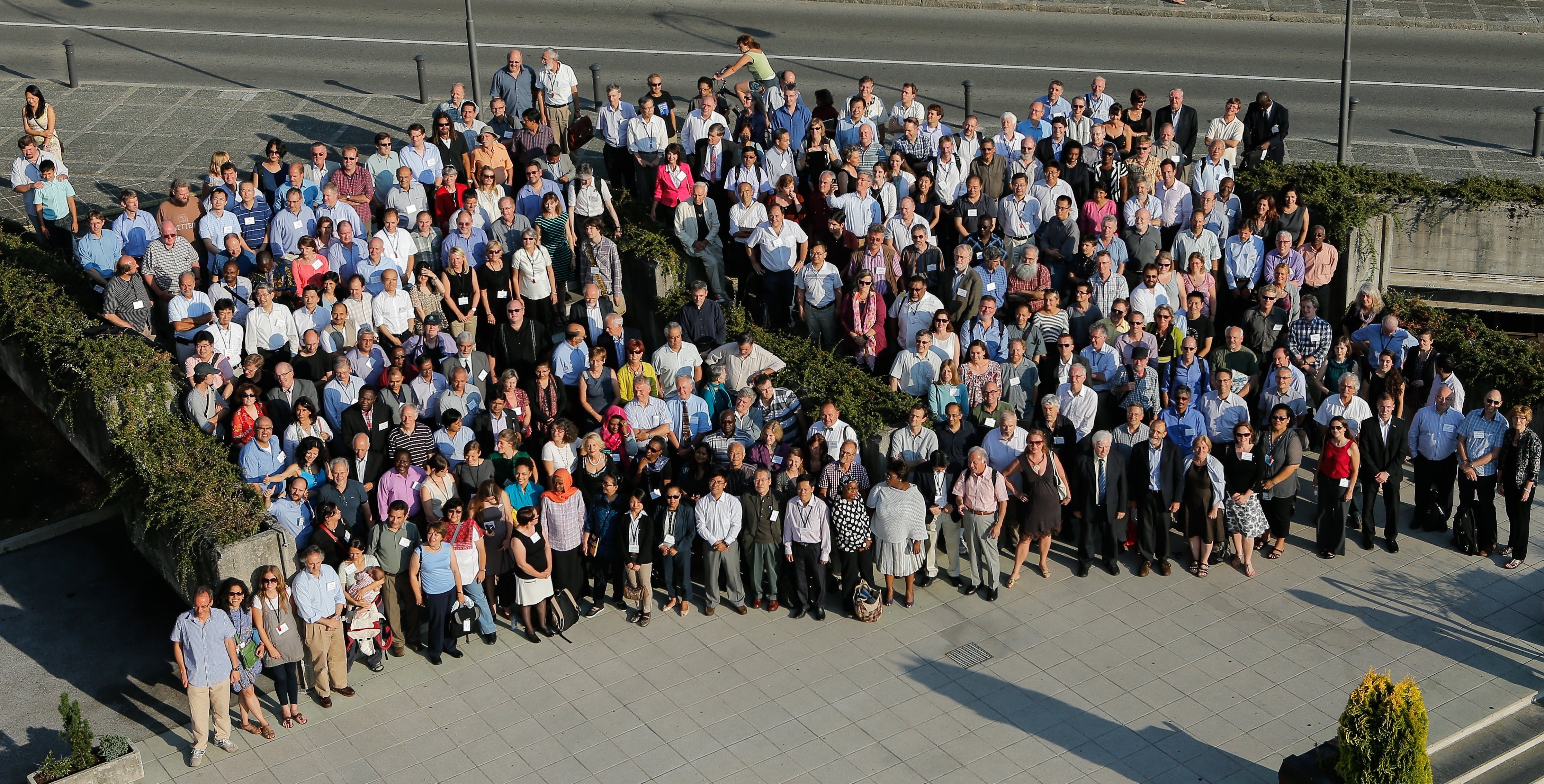 |
More information on the WGII contribution to AR5 can be found on the WGII AR5 website.
Working Group III
WGIII First Lead Author Meeting
12-15 July 2011
Changwon City (Republic of Korea) |
WGIII Third Lead Author Meeting
5-9 November 2012
Vigo (Spain)
|

See Photo gallery |
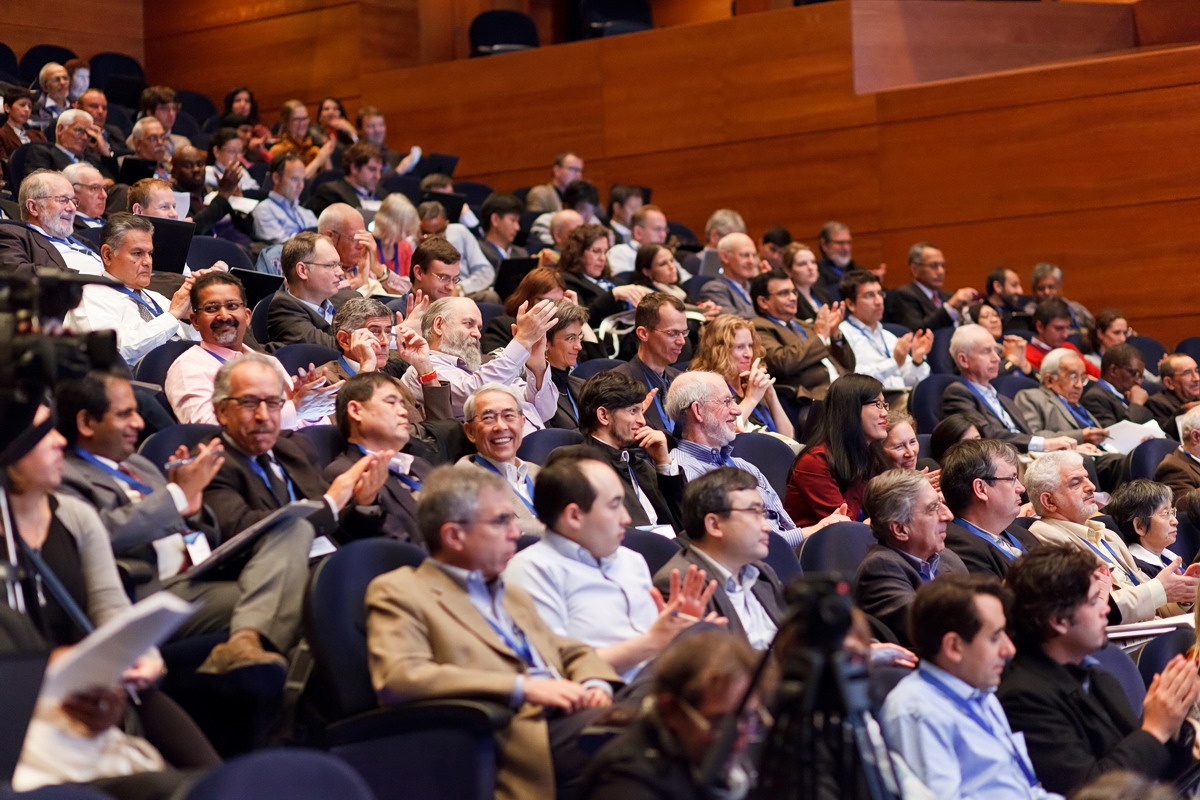
See Photo gallery
of Working Group III AR5 Authors |
WGIII Second Lead Author Meeting
19-23 March 2012
Wellington (New Zealand) |
WGIII Fourth Lead Author Meeting
1-5 July 2013
Addis Ababa (Ethiopia) |
|
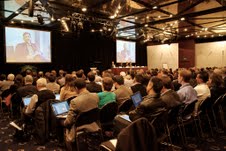
|

(Photo courtesy Benjamin Kriemann/IPCC) |
More information on the WGIII contribution to AR5 can be found on the WGIII AR5 website.
Synthesis Report
SYR Core Writing Team (CWT) Meetings already held:
More information on the Synthesis Report can be found on the AR5 Synthesis Report website.
The Development of Scenarios for the AR5
In the AR5 process, particular attention was given to the treatment of scenarios. See the 2007 Meeting Report and the 2010 Meeting Report (Berlin) on Socio-Economic Scenarios.
When the Panel decided in 2008 to prepare a Fifth Assessment Report, the Panel also invited the scientific community developing new scenarios for the analysis of emissions, climate change, impacts, and response strategies to move forward actively for the timely delivery of scenario results to feed the assessment process.
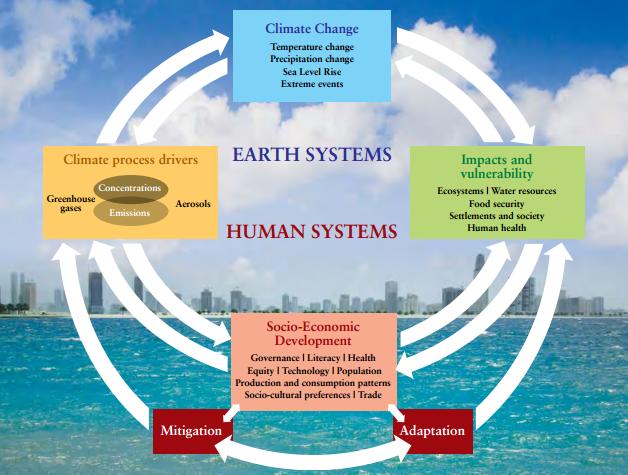
In the past, the IPCC coordinated the process of developing scenarios for its assessments. During its 25th session (Mauritius, 26-28 April 2006), the IPCC decided that rather than directly coordinating and approving new scenarios itself, the process of scenario development should now be coordinated by the research community.
The IPCC sought to "catalyze" the timely production by others of new scenarios for the Fifth Assessment Report (AR5). To this end an expert meeting was held from 19-21 September 2007 in Noordwijkerhout, the Netherlands (Meeting Report) which considered the plans by the scientific community and agreed representative concentration pathways.
For more information on this process conducted by the scientific community, see the IPCC's new scenarios webpage.
In addition to Assessment Reports, the IPCC publishes Special Reports on specific topics. The preparation and approval process for all IPCC Special Reports follows the same procedures as for IPCC Assessment Reports.
The IPCC has produced Special Reports on various topics such as aviation; regional impacts of climate change; technology transfer; emissions scenarios; land use, land-use change and forestry; carbon dioxide capture and storage;
and the relationship between safeguarding the ozone layer and the global climate system. For more information on these see the Special Reports section of the Publications page.
Special Reports in the Sixth Assessment cycle
During the 43rd Session of the IPCC (Nairobi, Kenya, 11 – 13 April 2016), the Panel decided to produce three Special Reports during the Sixth Assessment Report (AR6) cycle.
It decided to accept the invitation from the UNFCCC to prepare Global Warming of 1.5ºC, an IPCC special report on the impacts of global warming of 1.5°C above pre-industrial levels and related global greenhouse gas emission pathways,
in the context of strengthening the global response to the threat of climate change, sustainable development, and efforts to eradicate poverty. For more information including, timeline,
documentation and other relevant links click here. It will be finalized in early October 2018.
The Panel also decided to prepare two other Special Reports requested by governments: Special Report on the Ocean and Cryosphere in a Changing Climate; and Climate Change and Land: an IPCC special report on climate change, desertification, land degradation,
sustainable land management, food security, and greenhouse gas fluxes in terrestrial ecosystems. These will be finalized by September 2019.
Two IPCC Special Reports in 2011
In 2011, two IPCC Special Reports were finalized; the Special Report on Renewable Energy Sources and Climate Change Mitigation (SRREN) and the Special Report on Managing Risks of Extreme Events and Disasters to Advance Climate Change Adaptation (SREX). Both Special Reports were requested by governments.
Special Report on Renewable Energy Sources and Climate Change Mitigation (SRREN)
The Special Report on Renewable Energy Sources and Climate Change Mitigation (SRREN) was approved and accepted at the 11th Session of Working Group III that took place on 5-8 May 2011 in Abu Dhabi, United Arab Emirates.
This report assesses existing literature on the future potential of renewable energy for the mitigation of climate change. It covers the six most important renewable energy technologies, as well as their integration into present and future energy systems. It also takes into consideration the environmental and social consequences associated with these technologies, the cost, and strategies to overcome technical as well as non-technical obstacles to their application and diffusion.
More than 130 authors and 100 contributing authors from all over the world contributed to the preparation of SRREN on a voluntary basis.
Additional information on the report can be found here.
Special Report on Managing the Risks of Extreme Events and Disasters to Advance Climate Change Adaptation (SREX)
![[Special Report on Managing the Risks of Extreme Events and Disasters to Advance Climate Change Adaptation] ©: Reuters](../img/SREX_coverweb.jpg)
The Special Report on Managing the Risks of Extreme Events and Disasters to Advance Climate Change Adaptation (SREX) was approved and accepted at the first Joint Session of IPCC Working Groups I and II that met on 14-17 November 2011 in Kampala, Uganda.
The report assesses the effect that climate change has on the threat of natural disasters and how nations can better manage an expected change in the frequency of occurrence and intensity of severe weather patterns. It aims to be a resource for decision-makers to prepare more effectively for managing the risks of these events. A potentially important area for consideration is also the detection of trends in extreme events and the attribution of these trends to human influence.
More than 80 authors, 19 review editors, and more than 100 contributing authors from all over the world contributed to the preparation of SREX. The United Nations International Strategy for Disaster Reduction prepared the original proposal for the report.
Additional information on the report can be found here.
Since 1992, the IPCC has been preparing methodologies and guidelines to assist Parties to the
United Nations Framework Convention on Climate Change (UNFCCC) and its Kyoto Protocol to prepare
national inventories of greenhouse gas emissions by sources and removals by sinks. The last major
publication was the 2006
IPCC Guidelines for National Greenhouse Gas Inventories.
At the 43rd Session of the IPCC in April 2016, the Panel agreed to refine the 2006 IPCC Guidelines
for National Greenhouse Gas Inventories, including producing a Methodology Report in order to
update and supplement the 2006 IPCC Guidelines. Work on the Guidelines is necessary to update and
provide a sound scientific basis for future international climate action especially under the Paris
Agreement. This process will result in a Methodology Report which will be used in conjunction
with the 2006 IPCC Guidelines.
In October 2013, the IPCC accepted two new Methodology Reports prepared by its Task Force on
National Greenhouse Gas Inventories (TFI); the 2013 Supplement to the
2006 IPCC Guidelines for National Greenhouse Gas Inventories: Wetlands (Wetlands Supplement) and the
2013 Revised Supplementary Methods and Good Practice Guidance arising
from the Kyoto Protocol (KP Supplement).
At its 33rd session, the IPCC decided to produce additional guidance – the Wetlands Supplement – to
cover inland wetlands such as peatlands, draining and rewetting of organic soils, and coastal wetlands
such as mangroves. This was requested by the UNFCCC, and the IPCC hopes that the 2013 supplementary
guidance will make an important contribution to future international action on wetlands. More
information about the Wetlands Supplement can be found
here.
At the invitation of the Parties to the Kyoto Protocol to the UNFCCC, and following agreement by
the IPCC at its 35th Session, the TFI completed the KP Supplement. This supplement is a review and an
update of the good practice guidance on estimating greenhouse gas emissions and removals from land use,
land-use change and forestry (LULUCF) under the Kyoto Protocol. More information about the KP
Supplement can be found here
The TFI has also produced IPCC Inventory Software. It is available free on CD or can be downloaded
here. The TFI also
produces other material to assist users of the guidelines, such as the
Emissions Factor Database (EFDB).
For more information on the TFI please see the website.
Scenarios of potential future anthropogenic climate change, the underlying driving forces, and the response options are an important component of IPCC work.
In the past the IPCC coordinated the process of developing scenarios for its assessments (see AR 1990, SR 1994 and SRES 2000). In 2006 the IPCC decided that
rather than directly coordinating and approving scenarios, the process of scenario development should be coordinated by the scientific community. The IPCC
would catalyze the timely production of new scenarios for possible use in its Fifth Assessment Report (AR5). To this end an expert meeting was held on 19-21
September 2007 in Noorwijkerhout, the Netherlands (Report of the meeting) which
considered the plans by the scientific community and agreed representative concentration pathways. The meeting was attended by experts on integrated assessment (IAM),
impacts; adaptation and vulnerability research (IAV); and climate modelling (CM).
Representative Concentration Pathways (RCPs), which were used in AR5 facilitated coordination of new integrated socioeconomic, emissions, and climate scenarios.
The main rationale for beginning with RCPs was to expedite the development of a broad literature of ntegrated scenarios by allowing the modeling of climate system
responses to human activities to proceed in parallel to emissions scenario development.
After the conclusion of AR5, the research community and the IPCC reflected on the new scenario process and how it can be further improved to allow for a more integrated
assessment of mitigation, adaptation and climate change impacts and broader sustainable development across the entirety of IPCC work in the future. In this regard, an
expert meeting on scenarios was held in Laxenburg, Austria on 18-20 May 2015 (Report of the Meeting).
The research community has developed Shared Socioeconomic Pathways (SSPs), consisting of a set of narratives and corresponding quantitative information describing how global
socioeconomic issues could develop in the 21st century. The narratives were developed by a large team of experts and provide a ‘storyline’, describing how important trends
such as resource availability, technical development, and lifestyle changes evolve, whilst the quantitative information translates these storylines into gridded projections
of potential future population, GDP, and urbanization until 2100.
More information on scenario development and coordination with the scientific community can be found in the Progress Report submitted to the 32nd Session of the
Panel, Busan, Republic of Korea, 11 - 14 October 2010 (IPCC-XXXII/Doc. 16).
This report discusses the Draft Memorandum of Understanding between the Integrated Assessment Modeling Consortium (IAMC) and IPCC Working Groups II and III
(IPCC-XXXII/INF.10), and the link between the IPCC and the scientific community on the
scenario development process which continues now through the Co-Chairs of the Working Groups.
In this regard, a joint IPCC workshop of Working Groups II and III on "Socioeconomic Scenarios for Climate Change Impact and Response Assessments" was held in Berlin,
Germary on 1-3 November 2010. For background and supporting material for this workshop, please
see here.
Finally, the IPCC's Task Group on Data and Scenario Support for Impact and Climate Analysis (TGICA) also provides via the
Data Distribution Centre (DDC) a set of web pages that provide an overview of processes
for developing scenarios to support climate change research. These pages
are intended for researchers who may wish to participate in scenario development, who use scenarios in their research, or who wish to learn more about current efforts to
improve the coordination of different fields of climate research.
|
 |